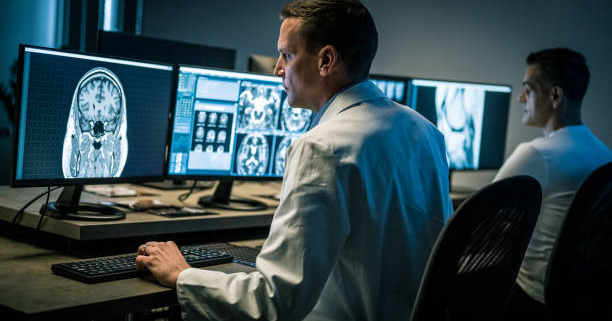Miles Jupp Makes Light Of His Recovery From A Brain Tumour
The comedian Miles Jupp has discussed his recovery from a brain tumour, as he prepares to take to the stage again in January. Jupp is well loved for his comedy performances and also his acting roles in the CBeebies show Balamory, the Harry Potter films, The Thick of It, and Rev.
Jupp is appearing in the upcoming Ridley Scott film about the life of Napoleon, The Emperor of Austria, and is also about to embark on an extensive stand up tour of the UK between January and May. He uses some of his recent experiences in the medical sector as inspiration for his comedy material.
In 2021, Jupp was diagnosed with a benign brain tumour after having a seizure. He subsequently underwent surgery to remove a tumour the size of a cherry tomato.
Although benign tumours are non-cancerous and unlikely to spread, they can press on important nerves in the brain and cause serious side effects such as seizures, vision disturbances, fatigue, loss of coordination, memory problems, and muscle weakness.
Jupp said of using his experience as stand up material: “I found being in hospital very uplifting, partly because you’re just surrounded by people who are very caring. It’s not me moaning about unsatisfactory customer experience. Hopefully it’s pure storytelling with a beginning, a middle and an end.”
Jupp has since made a good recovery from the neurosurgery, which is the main treatment for non-cancerous brain tumours. If it is not possible to remove the entire tumour, further treatment involving chemotherapy or radiotherapy may be undertaken.
Radiosurgery involves targeting the tumour with highly controlled doses of high-energy radiation to kill the tumour cells. It causes minimum damage to the surrounding cells, and avoids the need for invasive traditional surgery that involves cutting into the skull.
There are different types of radiotherapy machines, which generally either deliver standard external beam radiotherapy or stereotactic radiotherapy (SRT). The latter is used to deliver highly targeted beams that may be of a higher dose, which means that the treatment can be carried out in fewer sessions.
Some radiotherapy machines, such as Gamma Knife, are designed specifically to deliver SRT treatment.
Jupp discussed his experience further in an interview with Virgin Radio: “It’s terrifying. I sort of wrote it down after a while because, when I was first getting better, I was struggling to put things in order. At one point, I’d have to think for ages to remember the word ‘tumour’, which was, at that point, quite central to my life. So I thought I better start writing it down.”
Miles continued: “Every aspect of normal life when you go back, it scares you to do something for the first time. There was a period where I was doing things for the first time since the operation and thinking, ‘Will I still be able to do this particular thing? Will I still be able to ride a bike?'”
Jupp has fortunately recovered well and has used the experience as the basis of his new stand up routine.
For more information about brain tumour treatment, please contact Mr Andrew McAvoy of Amethyst Radiotherapy.



